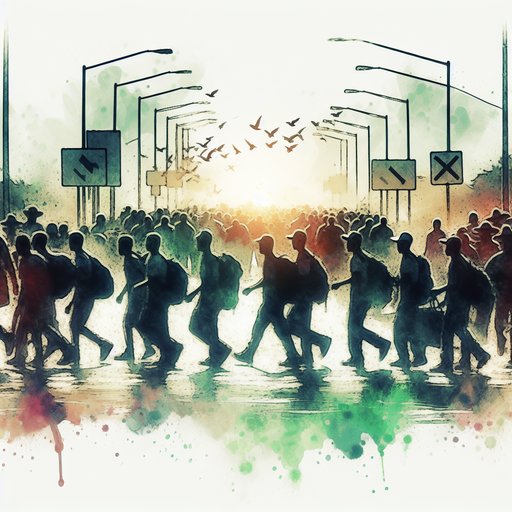
Intense debates over migration and border policy have erupted this week as new U.S. measures, including increased fees for visitors and asylum seekers, go into effect. Widespread criticism has been voiced by advocates, legal experts, and volunteers following recent government actions aiming to reshape both the financial and enforcement landscape of immigration. At the same time, reports of abusive conditions in several Florida detention centers and an expanded immigration enforcement budget are fueling concern about the direction of U.S. border policy and its human impact. These rapid policy shifts come amid surging activism in immigration courts and mounting attention from communities across the country.
In the latest development, the U.S. government has implemented a $250 "Visa Integrity Fee" for most foreign visitors as well as a recurring $100 annual fee charged to refugees with active asylum claims. The rollout of these fees, under the so-called Big Beautiful Bill, marks a significant shift toward a more financially burdensome immigration process. Critics argue that refugees and visitors, many already facing precarious financial situations, will find it even more difficult to pursue legal pathways to safety and opportunity in the U.S. [1].
Meanwhile, a new Human Rights Watch report has brought renewed scrutiny to detention practices at three immigration centers in Florida. The report, based on recent interviews and documentation, details persistent patterns of alleged abuse and neglect since January, raising questions about accountability and due process for detainees. According to the findings, many individuals housed at these centers report being subjected to harsh conditions, inadequate medical care, and fear of retaliation after voicing complaints [2].
Amid these policy changes, volunteers and advocates are stepping up their support for migrants facing deportation and asylum hearings. In Seattle, for instance, grassroots volunteers have begun filling courtrooms in solidarity, working to ensure that migrants understand their legal rights and are fairly represented. The community response follows a closely watched case in which a judge’s dismissal inadvertently placed a Colombian man at risk of expedited removal, demonstrating both the complexities and real-life impacts of the current enforcement system [3].
Further complicating the landscape, the recent significant expansion of the U.S. immigration enforcement budget has heightened attention on the government's policing approach. Analysts warn that an increasingly well-funded enforcement apparatus may result in a more repressive environment for migrants, with greater surveillance and intensified workplace and community raids. Despite the controversies, some officials argue that these policies and investments are necessary to restore integrity to the system, though advocates counter that reforms must retain a focus on humanitarian protections [4].
- U.S. Will Charge Visitors $250 Visa Deposits, Refugees Face $100 Annual Fee For Asylum Claims
- HRW Report Documents Abusive Practices at Three Florida Immigration Detention Centers Since January 2025
- Volunteers flock to immigration courts to support migrants arrested in the hallways
- Trump’s big beautiful police state is here
























